Have you ever come across a line of poetry that stops you in your tracks, making you pause and reflect on its sheer beauty? That’s the kind of magic Pablo Neruda brings to the world of poetry. With his rich, evocative language and profound emotional depth, Neruda’s works have touched the hearts of readers worldwide. Today, we’re diving into the top 10 must-read poetry books by this legendary poet. Whether you’re a lifelong fan or new to his work, these collections are sure to captivate your soul.
1. “Twenty Love Poems and a Song of Despair” (1924)
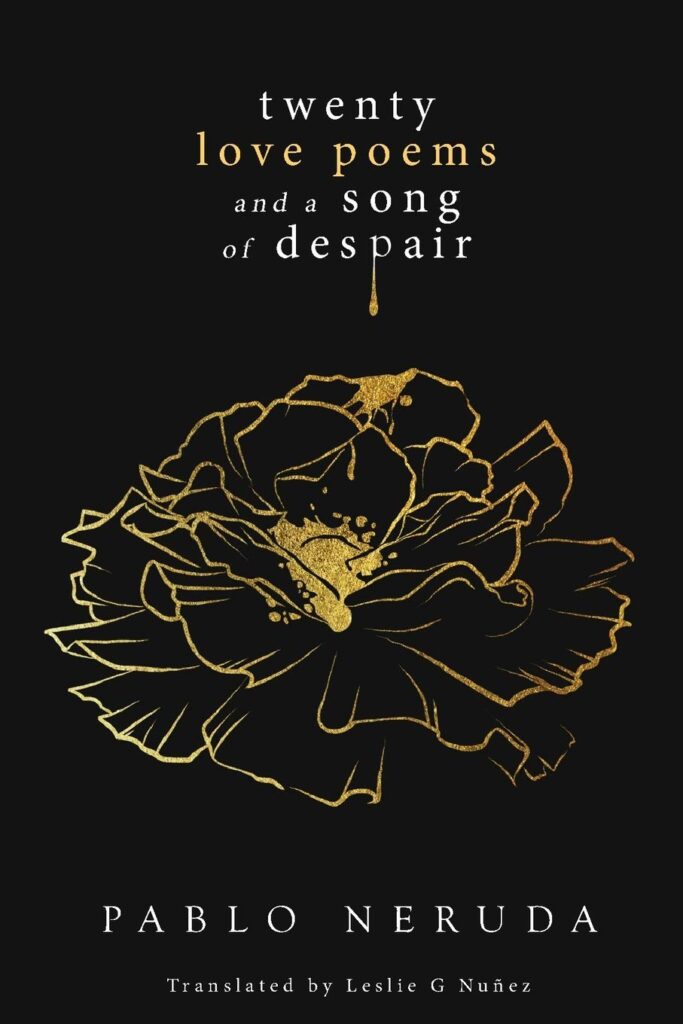
Overview
This collection is arguably Neruda’s most famous work, and for good reason. Published when he was just 20 years old, “Twenty Love Poems and a Song of Despair” explores the themes of love and heartbreak with a raw intensity that resonates deeply with readers.
Significance
This book cemented Neruda’s place in literary history and continues to be one of the most beloved poetry collections worldwide. Its passionate exploration of love in all its forms—from the ecstatic to the anguished—speaks to the universal human experience.
Key Poems
Standout poems like “Tonight I Can Write (The Saddest Lines)” and “Body of a Woman” showcase Neruda’s ability to convey deep emotion with simplicity and power. These poems capture the highs and lows of love, making them timeless favorites.
Personal Anecdote: I remember reading “Tonight I Can Write (The Saddest Lines)” for the first time in college. It was a rainy evening, and the melancholic beauty of the poem matched the mood perfectly. That experience made me fall in love with poetry all over again.
2. “Residence on Earth” (1933)
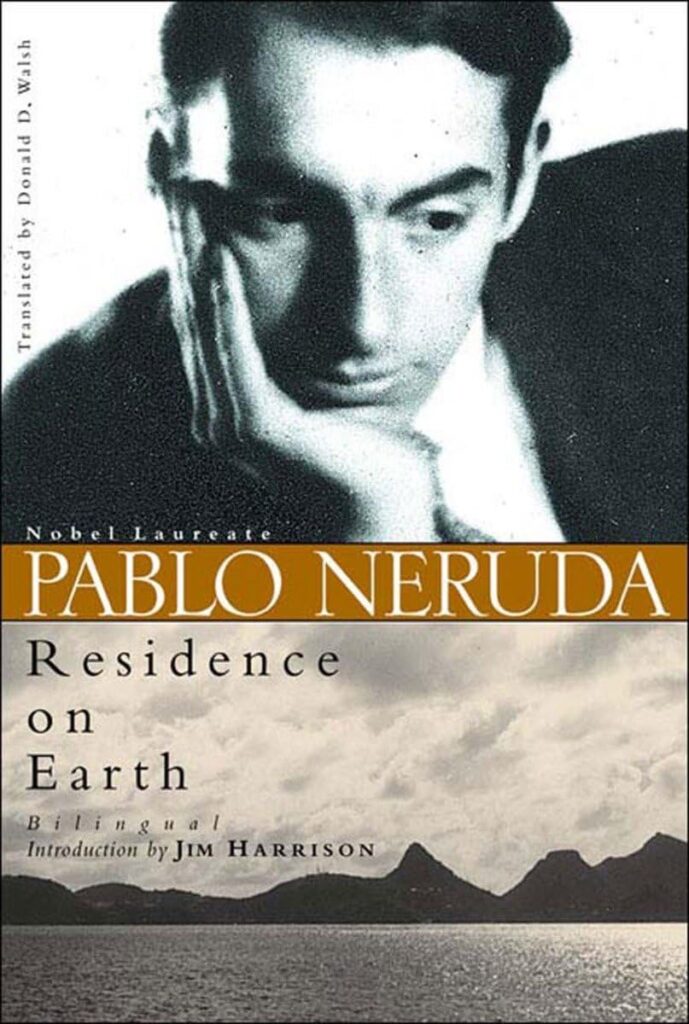
Overview
“Residence on Earth” marks a significant shift in Neruda’s poetic style, moving towards more complex and existential themes. This collection reflects his growing concerns about human existence and social issues.
Significance
This book is pivotal in Neruda’s career, showcasing his evolution as a poet. It delves into themes of isolation, despair, and the search for meaning, resonating with readers who grapple with similar existential questions.
Key Poems
Poems like “Walking Around” and “I’m Explaining a Few Things” stand out for their introspective and often bleak outlook, yet they are beautifully crafted, revealing Neruda’s profound understanding of the human condition.
3. “Canto General” (1950)
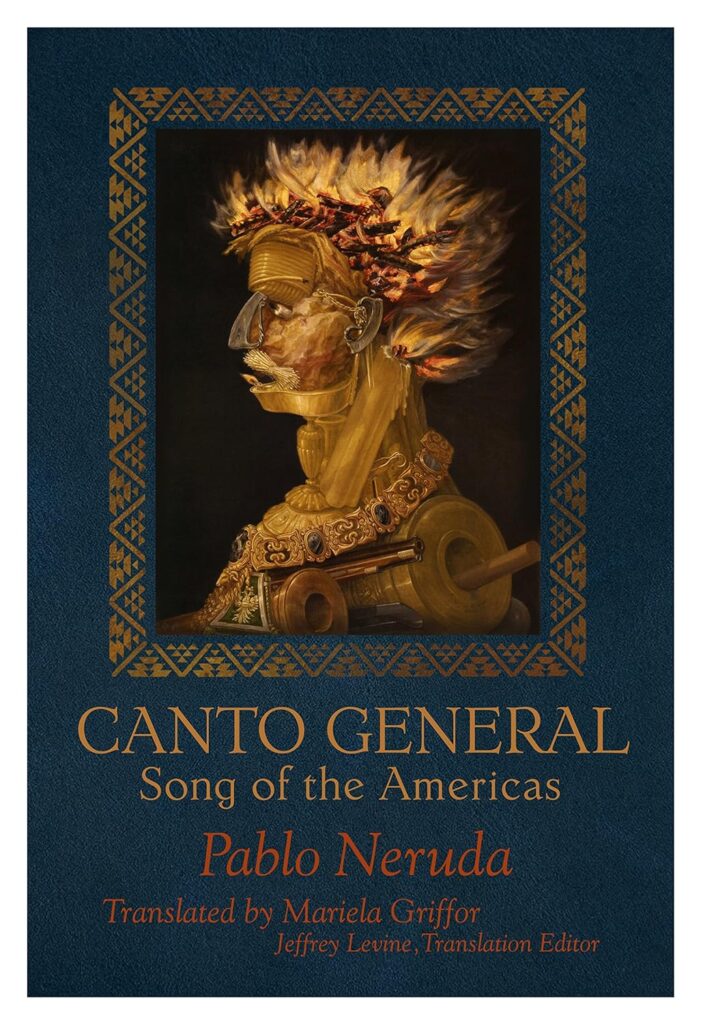
Overview
This epic collection is a sweeping chronicle of Latin American history and culture. “Canto General” is not just a book of poems; it’s a monumental work that blends history, politics, and poetry.
Significance
“Canto General” is significant not only for its literary value but also for its political impact. It’s a powerful testament to Neruda’s commitment to social justice and his deep love for Latin America.
Key Poems
Sections like “The Heights of Macchu Picchu” and “The Conquistadors” highlight the richness and complexity of Latin American history. These poems are vivid, detailed, and deeply moving.
Personal Anecdote: I visited Machu Picchu a few years ago, and reading Neruda’s poems about this ancient site brought the experience to life in a way nothing else could. His words made me see the ruins with fresh eyes, appreciating their beauty and historical significance even more.
4. “Elemental Odes” (1954)
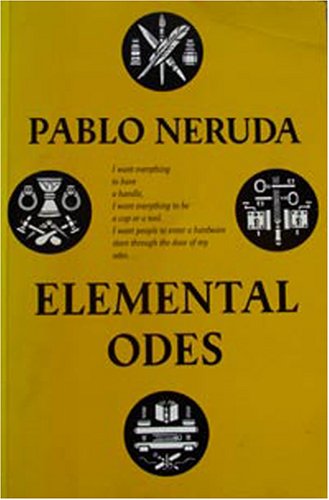
Overview
In “Elemental Odes,” Neruda turns his attention to the beauty of everyday objects and experiences. These poems celebrate the ordinary, transforming it into the extraordinary through his lyrical voice.
Significance
This collection is a testament to Neruda’s ability to find poetry in the mundane. It encourages readers to appreciate the simple things in life, offering a fresh perspective on the world around us.
Key Poems
“Ode to My Socks” and “Ode to the Tomato” are perfect examples of how Neruda elevates the everyday. These poems are charming, whimsical, and profoundly insightful.
5. “100 Love Sonnets” (1959)
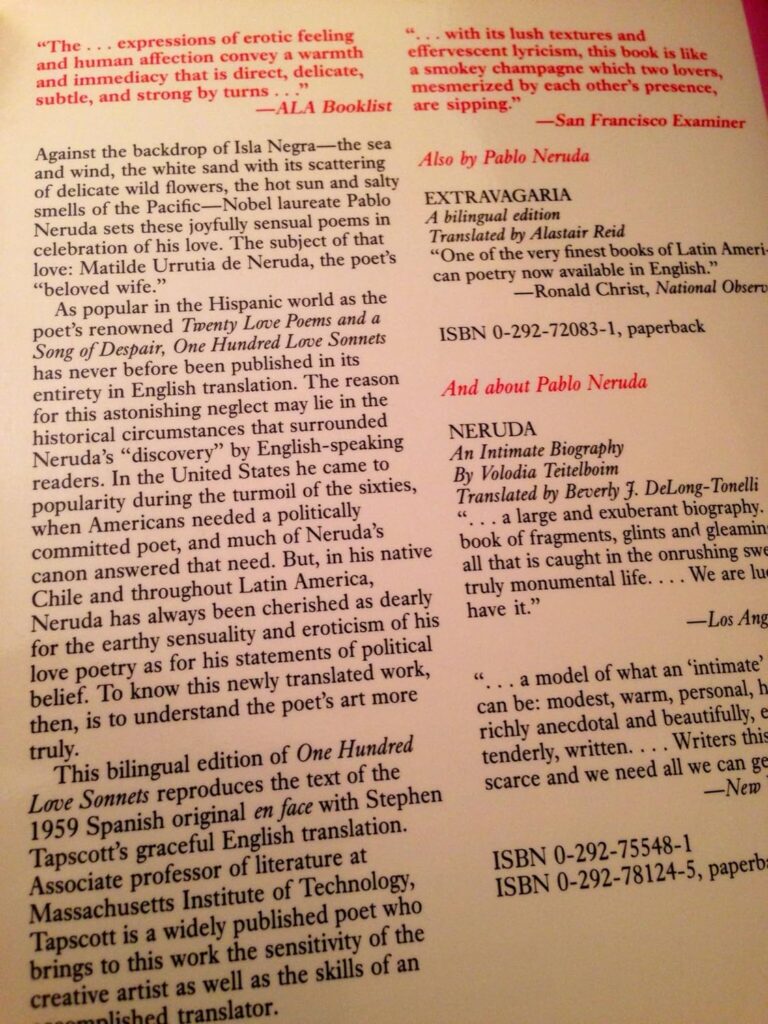
Overview
Dedicated to his third wife, Matilde Urrutia, “100 Love Sonnets” is a passionate and romantic collection that explores the depths of love and devotion.
Significance
This book stands out for its personal and intimate tone. The sonnets are a heartfelt tribute to Matilde, showcasing Neruda’s skill in capturing the nuances of love.
Key Poems
Sonnets like “XVII (I do not love you as if you were salt-rose, or topaz)” are renowned for their emotional depth and exquisite language. These poems are perfect for anyone who has ever been in love.
6. “The Captain’s Verses” (1952)
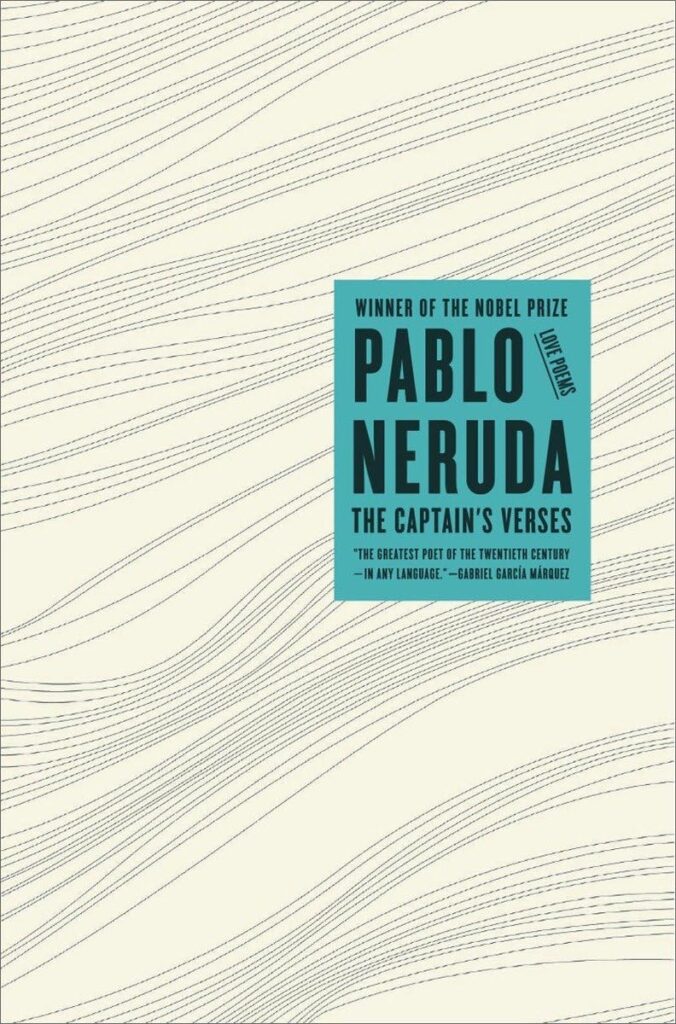
Overview
Initially published anonymously, “The Captain’s Verses” is another collection dedicated to Matilde Urrutia. These poems blend themes of love, passion, and political commitment.
Significance
The secretive nature of its initial publication adds an intriguing layer to this collection. It’s a fascinating blend of the personal and political, reflecting Neruda’s multifaceted life.
Key Poems
Poems like “The Queen” and “If You Forget Me” are particularly striking for their intensity and sincerity. They reveal Neruda’s deep emotional and political convictions.
Personal Anecdote: I gifted “The Captain’s Verses” to a friend for their wedding anniversary, and they were moved by the raw emotion and beauty of the poems. It made me realize how Neruda’s words can touch lives in the most profound ways.
7. “The Book of Questions” (1974)
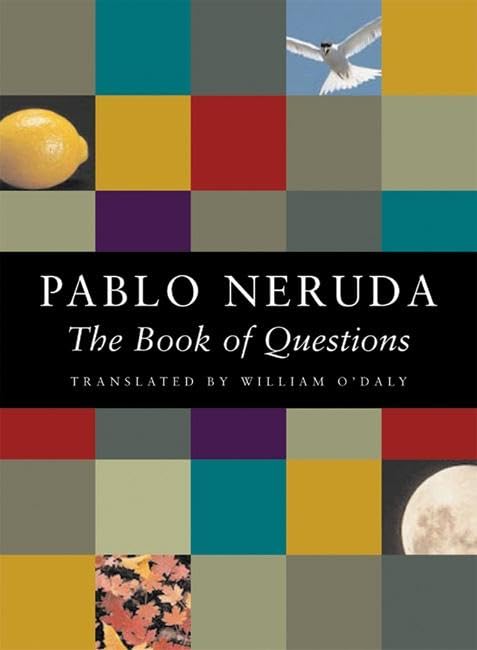
Overview
“The Book of Questions” is a unique and contemplative collection where Neruda poses philosophical and often whimsical questions about the world.
Significance
This book showcases Neruda’s curiosity and wonder, encouraging readers to ponder life’s mysteries. It’s a delightful and thought-provoking read that leaves a lasting impression.
Key Poems
Questions like “Why do leaves commit suicide when they feel yellow?” and “Does the butterfly remember her former life as a caterpillar?” are perfect examples of Neruda’s imaginative and reflective style.
8. “Extravagaria” (1958)
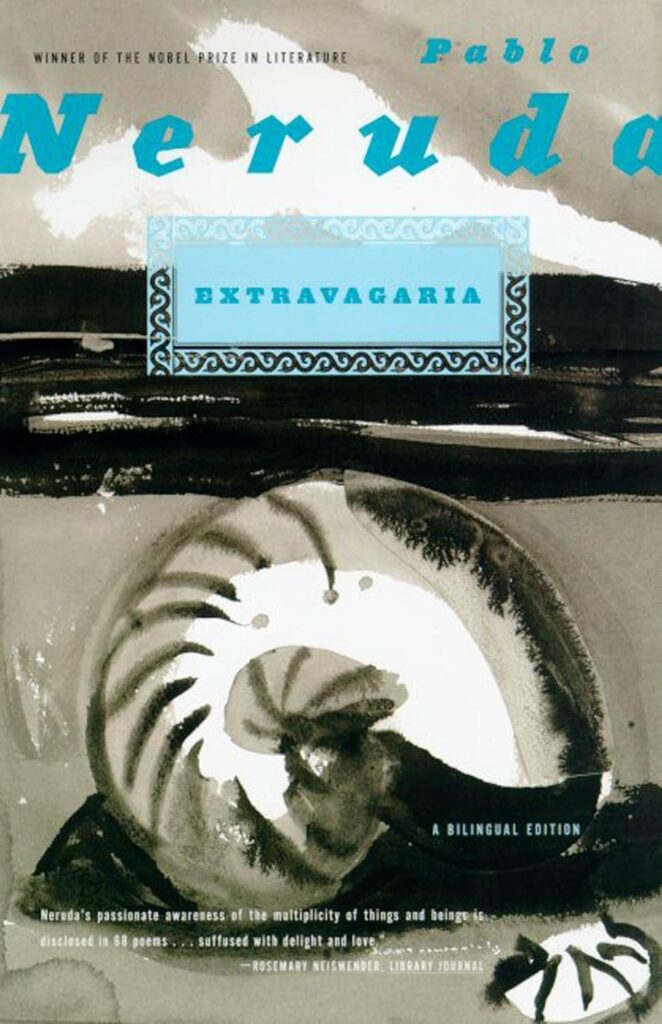
Overview
“Extravagaria” is a diverse collection that captures Neruda’s versatility as a poet. It includes a wide range of themes and stylistic experiments.
Significance
This collection highlights Neruda’s creative genius, showcasing his ability to explore different themes and forms. It’s a testament to his artistic evolution and versatility.
Key Poems
Poems like “We Are Many” and “Too Many Names” stand out for their unique approach and profound insights. They reflect Neruda’s ever-evolving poetic voice.
9. “Selected Poems” (1972)
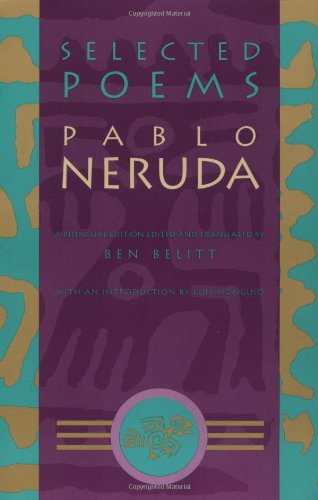
Overview
This curated selection spans Neruda’s career, offering a comprehensive look at his poetic journey. It’s an excellent introduction for new readers and a cherished collection for longtime fans.
Significance
“Selected Poems” provides a broad overview of Neruda’s work, highlighting his major themes and stylistic shifts. It’s a must-have for anyone looking to explore his poetry in depth.
Key Poems
This collection includes essential poems from various stages of Neruda’s career, offering a rich tapestry of his poetic achievements.
10. “The Poetry of Pablo Neruda” (2003)
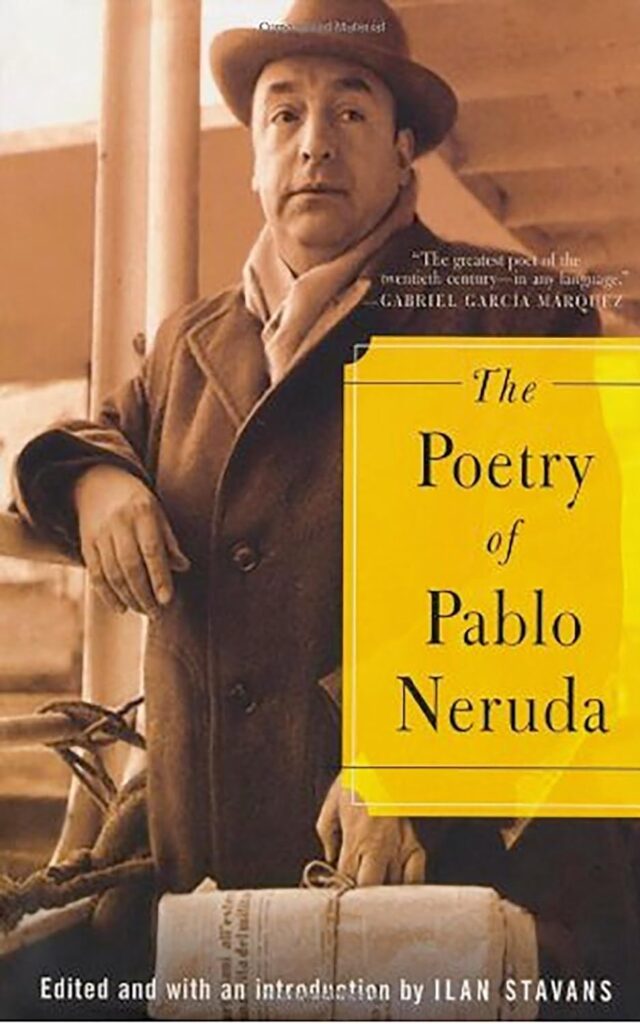
Overview
This comprehensive anthology is a definitive collection of Neruda’s poetry, encompassing his entire body of work.
Significance
As a comprehensive anthology, “The Poetry of Pablo Neruda” is invaluable for understanding the full scope of his legacy. It’s an essential addition to any poetry lover’s library.
Key Poems
This anthology includes some of Neruda’s most iconic poems, making it a treasure trove of his literary contributions.
Conclusion
Pablo Neruda’s poetry is a gift to the world, offering profound insights into love, life, and the human condition. These ten books capture the essence of his poetic genius, each one a testament to his enduring legacy. Whether you’re discovering Neruda for the first time or revisiting his work, these collections are sure to inspire and move you.
Call to Action: Dive into these books and let Pablo Neruda’s words transform your world. There’s a certain magic in his poetry that speaks to the heart, reminding us of the beauty and complexity of life.
Final Thought: As Neruda himself said, “I want to do with you what spring does with the cherry trees.” Let his poetry awaken something new and beautiful within you. Happy reading!

Awsome article and right to the point. I don’t know if this is actually the best place to ask but do you people have any ideea
where to get some professional writers? Thanks 🙂 Escape rooms hub
Hi! Thank you for your kind words about the article! For professional writers, you might want to check out platforms like Upwork, Fiverr, or ProBlogger. These sites have many talented writers who can help with various writing needs. Thanks for reading! 🙂
I think the admin of this web page is genuinely working hard for his
website, as here every data is quality based information.